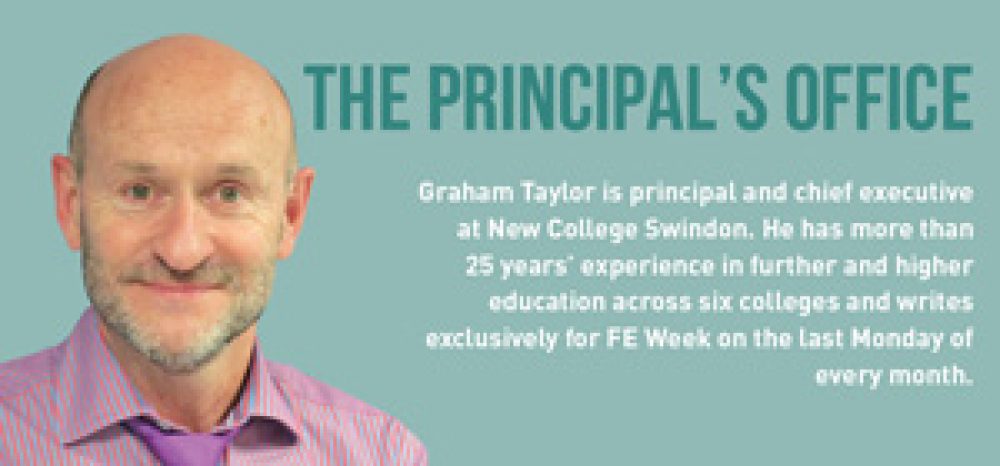Do colleges feel picked on? You bet. Funding cuts over the last 10 years and the difficulties in dealing with less money, annual redundancy rounds and adapting to a declining market have led to us being put under the cosh by government and Ofsted in a number of ways, some unfairly.
There isn’t a level playing field. Colleges need be treated in the same way as other providers, such as academies, school sixth forms and UTCs. Here’s what needs to change:
VAT
FE colleges pay it… others don’t. If we demerged our 16-18 work and set up an academy, we’d save £350,000 a year in VAT.
Let’s have one system, or let everyone use the other, to even things out, even though there’s a good chance that Spreadsheet Phil might prefer that all institutions pay.
New buildings
Colleges, or at least the financially viable ones, contribute to capital expenditure. In our case we have self-funded new build and the most we have ever received from the government is a 25 per cent contribution. The benefit of this approach is that it does make you think long and hard as to what you really need and why.
But school sixth forms and UTCs get 100 per cent capital funding. The taxpayer pays for the lot. No wonder there’s excess capacity of bricks and mortar for 16-18 provision, the average class size in school sixth forms is around seven – according to DfE data – and UTCs are on average working at only 50 per cent capacity. This is not an efficient use of scarce educational resources.
FE has been the Cinderella sector far too long
Area reviews
The heroic assumption with area reviews is that merging will cure all financial ills. We know that this doesn’t always follow: colleges large and small have got into financial difficulties.
But if big is beautiful, then surely UTCs and school sixth forms should be subjected to the same scrutiny?
There are over 1,200 school sixth forms and UTCs in this country each with less than 100 learners – a concern in terms of value for money/efficiency, never mind quality and breadth of the learner experience.
Quality
The DfE should publish 16-18 achievement rates for all providers, including drop-out rates as well as year-end successes – it’s the only way of assessing overall quality. The performance tables do not show drop-outs from subjects or institutions, except indirectly in the progress measures for English and maths, because a score of -1 is assigned for a drop-out or a no-show at an exam.
On a positive note, here’s what looks like it might be changing:
Access to schools
Colleges struggle to get access to schools so we have to rely on expensive, above-the-line advertising to get our message across. From a freedom-of-choice perspective this is unfair.
Lord Baker’s amendment to the Technical and Further Education Bill (which has already become immortalised as the ‘Baker clause’) theoretically means schools will have to allow a “range of education and training providers” access to pupils aged between 13 and 18, to promote technical education qualifications or apprenticeships.
This should be for all provision, including ‘academic’ and hybrid (a mix of academic with vocational) routes. It’s high time this change happened.
T-levels
Funding for primary and secondary education has risen rapidly in the last 25 years, and universities can raise income by levying tuition fees. But there’s been no such rise for FE.
So the budget announcement on T-levels – which seem to be a resurrection of Ed Balls’ 14 routes to stardom (now 15) – provides a welcome boost in funding to vocational education.
The chancellor has promised an additional £500 million a year by 2022 – a 19 per cent increase. This goes some way to restoring the cuts to maximum annual funded hours, now down to 540 and 450 respectively for 17 and 18-year-olds.
I hope the extra funding will flow to broader educational needs including the generic skills of English, maths and IT. If so, this might just be the longer term solution to increased productivity that the chancellor wants.
These two developments suggest government seems (at last!) to understand that further education is vital to the future of the UK’s economy.
Let’s hope they follow up these positive announcements by addressing the remaining inequalities. FE has been the Cinderella sector far too long.
Graham Taylor is principal and chief executive at New College Swindon








Your thoughts